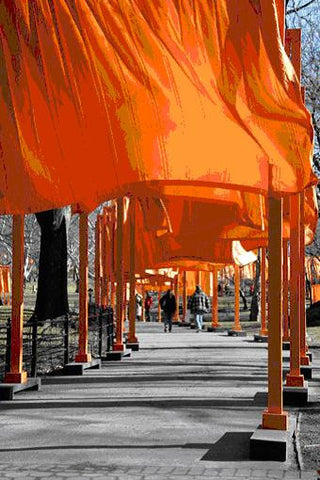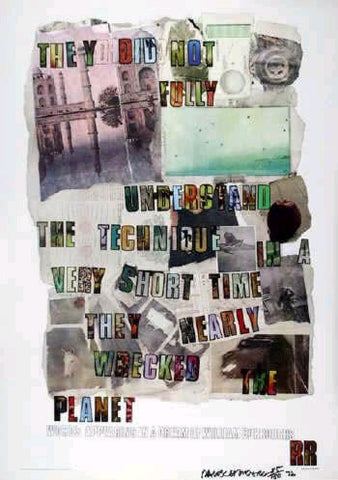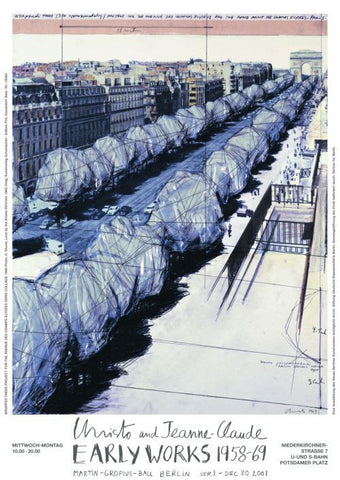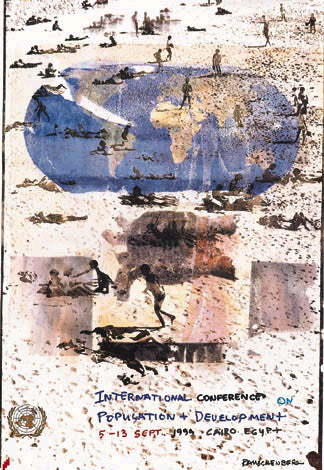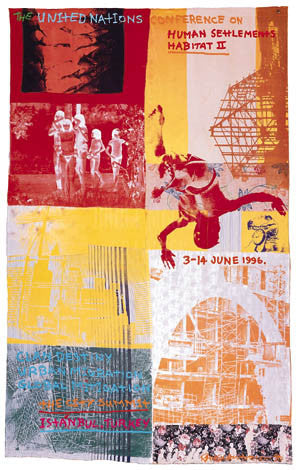Founder: Theodore W. Kheel (1914-2010)
Theodore W. Kheel, who founded NNF, had a long and distinguished career in conflict resolution. For half a century, he applied his extraordinary genius for resolving conflicts to the field of labor relations and related societal concerns. In the last two decades of his life, his primary focus was on addressing what he called “the most urgent conflict facing humanity today,” the conflict between economic development and environmental protection.
In the field of labor relations, Kheel settled some of the most intractable disputes of the 20th Century. The New York Times declared him “the most influential peacemaker in New York City in the last half century,” and Business Week dubbed him “Master Locksmith of Deadlock Bargaining.” He was called on by presidents, governors, and mayors to act as a mediator or serve on fact-finding boards. Kheel also arbitrated thousands of disputes.
Kheel often applied his skills at finding solutions not only to specific disputes but also to broad societal issues, such as civil rights. He was influential in that movement in the 1950s, as chairman of the National Urban League, and in the 1960s, when he continued to work with civil rights leaders, including most notably the Rev. Martin Luther King, Jr.
Beginning in the early 1990s, Kheel became deeply concerned about the future of the planet, and began dedicating his energy and talent to the cause of sustainable development. He founded and published the Earth Times, the prime source of information pertaining to the Earth Summit and the treaty on climate change signed there. Later, he founded the Nurture Nature Foundation and Nurture New York’s Nature, which later merged with it, both dedicated to helping reconcile the conflicting goals of development and conservation. Kheel also helped to create a 1,500-acre ecological reserve in the Dominican Republic, and to found a pioneering Ecological Foundation there.
Kheel was a long time advocate of mass transit as a sustainable solution for transportation in cities. His involvement with transit began in the 1940s, when he directed New York City’s Labor Relations Division. After he left city government, Kheel was asked to serve as mediator whenever a transit strike was threatened, and was the industry’s impartial arbitrator for many decades.
Already in the early 1950s, Kheel was calling for increased public support for mass transit as a way to curb growing traffic congestion. In 1958, he issued a report that received widespread attention, in which he criticized a law that required transit operations to be maintained on a self-sustaining basis.
In the 1960s, Kheel made headlines when he urged that tolls charged to drive cars into the city be doubled, and the proceeds used to help the struggling transit system. Although attacked vehemently at the time, his ideas were implemented, in large part, by the end of the decade.
The exception was the Port Authority, which claimed that it was prohibited by law from using toll revenues to support mass transit. As a result of that law, Kheel’s campaign to have the Authority use its tolls for mass transit took longer. Although he succeeded in having the law repealed in the 1970s, the full benefit of his efforts were not harvested until 2007, when the bonds issued prior to the law’s repeal finally matured.
During his life, Kheel also engaged in many other activities in support of mass transit, including a widely covered campaign during the 1970s to defeat a transportation bond issue that allocated vast funds to highways and little for mass transit. In 2007, he initiated a study of the potential of free transit to create a better balance in transportation in New York City.
Mr. Kheel graduated from Cornell University, A.B. 1935, and Cornell Law School, LLB 1937. He was a member of the New York Bar Association, the American Arbitration Association and the Academy of Arbitrators. He was a partner in the firm of Battle Fowler Stokes & Kheel for many years, and later was of counsel to Paul, Hastings, Janofsky & Walker LLP. Kheel summarized his views on the basic principles of conflict resolution in his book, “The Keys to Conflict Resolution,” and in an online course at http://conflictresolution.org. He was also the author of a 10-volume treatise entitled “Kheel on Labor Law.” His historic archives are collected at the Kheel Center at Cornell's School of Industrial and Labor Relations.

